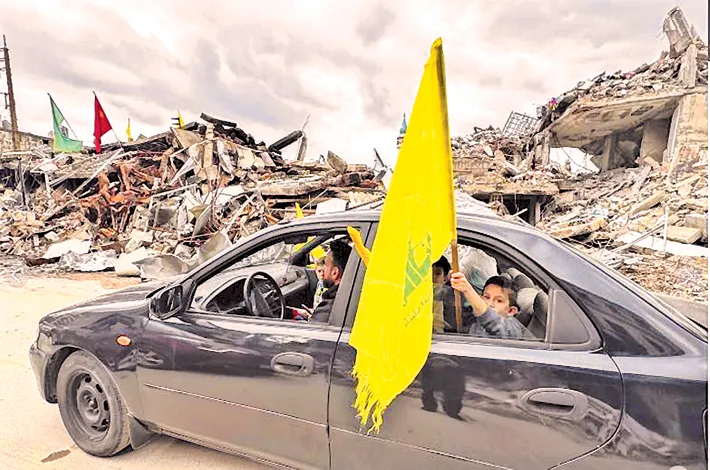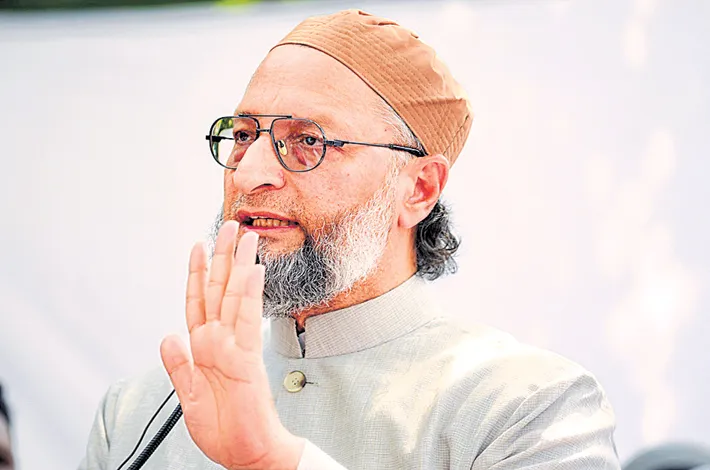IDF may extend Lebanon stay by 30 days
06-01-2025 12:00:00 AM

Reason for move | Israel says it is weighing on whether to move out of southern Lebanon as the latter’s army has failed to deploy in the area within the 60-day stipulated period in the ceasefire deal
Ceasefire terms
* Both Israel and Lebanon agreed to stop all offensive military operations against each other
* The IDF is required to cede all of its positions in southern Lebanon to the Lebanon armed forces within 60 days
* Hezbollah is required to withdraw its forces and weapons from the area between the Blue Line (the unofficial border between Lebanon and Israel) to areas north of the Litani River, some 30 km from the border with Israel
Agencies TEL AVIV/BEIRUT
Israel could extend its presence in Lebanon for an additional 30 days beyond the 60-day withdrawal period stipulated in its ceasefire agreement with Hezbollah, the Al-Akhbar outlet, aligned with the terror group, quoted Lebanese army officials as saying.
The newspaper cited a message sent by US military official Major General Jasper Jeffers, who is tasked with overseeing the ceasefire, to the Lebanese Armed Forces indicating that the Israel Defence Forces (IDF) will decide whether to request the extension depending on if it can “fulfill its goals of ensuring the end of (Hezbollah’s) ability to carry out a preemptive attack”.
Hezbollah chief Naim Qassem has warned “patience may run out” even before the 60-day window is up. As part of the truce agreement signed on November 27, 2024, the IDF is required to cede all of its positions in southern Lebanon to the LAF within 60 days.
Within the 60-day withdrawal period, however, the IDF has continued to carry out strikes against Hezbollah operatives and infrastructure in south Lebanon. It has denied violating the terms of the agreement, saying that the strikes have targeted Hezbollah’s own violations.
Speaking to The Times of Israel last month, a military source confirmed that the IDF was gearing up for the possibility that troops would stay beyond the 60-day period as the Lebanese army was currently deploying too slowly in the southern Lebanon area, allowing Hezbollah time to regroup.
In addition, the Lebanese army had failed to attack Hezbollah. On his part, Hezbollah chief Qassem said on Saturday, “There is no timetable that specifies the resistance’s work, and our patience is linked to the appropriate timing to confront the enemy. “In the past, Israel reached Beirut within days, but in the 2024 aggression, it was unable to advance more than a few hundred meters at the front edge.
Israel was unable to advance because the resistance fighters stood firm and stood firm in the face of it,” he said Israel did not seek to move beyond the border area in its recent ground campaign, saying it was acting only to eliminate Hezbollah infrastructure threatening communities in northern Israel.
“The enemy was forced to request a ceasefire because of the resistance’s capabilities, and we agreed through the Lebanese state,” claimed Qassem. Israeli forces have so far withdrawn from two towns in southern Lebanon, Khiam and Shamaa. But according to the International Organization for Migration, they remain stationed in some 60 others, and around 160,000 Lebanese remain displaced.
On Saturday, the international peacekeeping body UNIFIL accused the Israeli military of destroying a blue barrel marking the border between Israel and Lebanon, as well as a Lebanese army observation tower near one of the UN observer force’s positions. UNIFIL said the IDF’s “deliberate and direct destruction” of the blue barrel and Lebanese army infrastructure is a “flagrant violation of Resolution 1701 and international law”.
“We call on all actors to avoid any actions, including the destruction of civilian property and infrastructure, that could jeopardize the cessation of hostilities,” the observer force added. There was no immediate comment from the IDF on the incident.








